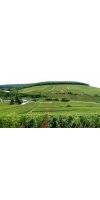Wine from Chartron et Trebuchet

The Chartron et Trebuchet Estate
Owners of Premiers and Grands Crus in Puligny-Montrachet since 1859 with the Domaine Jean Chartron, Jean-René Chartron founded the Maison Chartron et Trébuchet in 1984 with Louis Trébuchet, manager of a wine trading company.
Vincent Sauvestre acquired the company in 2004. His objective is to continue to promote the great white wines of Burgundy, whilst respecting and perpetuating the quality work achieved by Jean Chartron and Louis Trébuchet.
The Maison Chartron et Trébuchet specialises in producing great white Burgundy wines. The know-how of the winemakers begins with a radical selection of the very best plots: the highest-quality terroirs of the Côte are chosen and the grapes are carefully monitored throughout the ripening period. Grapes are hand-picked when the balance between acidity and sweetness is at its prime: the fruit must not be too ripe so that the full potential of the terroir is maintained, including its acidity, to ensure that the wines age properly. All of the winemaking is done in casks: the alcoholic fermentation is followed by malolactic fermentation. A proportion of 20 to 40% of new barrels is used, depending on the appellations and the vintage. Wines are left to age for 12 to 18 months depending on the appellations.
The Chartron et Trebuchet Vineyards
Chartron et Trébuchet's vineyards are all planted on Limestone and Clay based soils. In average, the age of the vines is 30 years old.
No products found
- back
Selected Options
Wineries
Categories
Pricing
Countries
Regions
Grape Types
Wineries
Organic/Free Shipping
Hailing from the newly established West Sonoma Coast AVA, this inaugural release displays deep ruby in tint with Bing cherry, wild mountain berry, and an ethereal note of damp earth. Vibrant red and blue fruits dance on the palate, accompanied by oyster shell and a stony tension in character with its coastal influences. A silky texture and uplifted acidity add a sophistication and intensity to this wine, as well as a remarkably long finish.
Review:
The 2021 Pinot Noir (West Sonoma Coast), a new wine in this range, is lights out. Rich, ample and bold, the 2021 races across palate with layers of purplish fruit, lavender, spice, menthol, licorice and spice. A dollop of stems adds nuance, but without dominating the overall balance. There's terrific acidity and structure to play off the natural fruit richness that is such a distinctive attribute of the best sites in the appellation.
-Vinous 96 Points
The grapes for this wine come from loamy, well-drained soils on our estate vineyard. Dijon and Wente clones are fermented in stainless steel and aged in French oak. This is an elegant chardonnay with a focused mid-palate and the refreshing cool climate acidity characteristic of Sea Smoke Vineyard.
Tasting Notes An elegant Chardonnay with aromas of lemon curd, star fruit, fresh cut peach and wet stone. Complemented by satsuma mandarins and a touch of hazelnut in the focused mid-palate and the refreshing cool climate acidity of our estate vineyard. Winemaking Our estate-grown Chardonnay fruit was picked and hand-sorted in the vineyard before spending the night in our cold room. Chilled grapes were softly pressed and the juice was gently pumped into a stainless steel tank and cold settled. Once the heavy solids were removed, the juice was racked to a stainless steel fermenter, then inoculated for primary fermentation. Following primary fermentation, the wine was racked to barrels, inoculated for malolactic fermentation, then periodically stirred to enhance depth and mouthfeel. The 2023 Sea Smoke Chardonnay was aged for a total of 10 months prior to bottling with no fining and no filtration.




